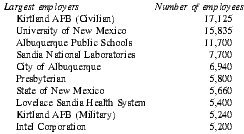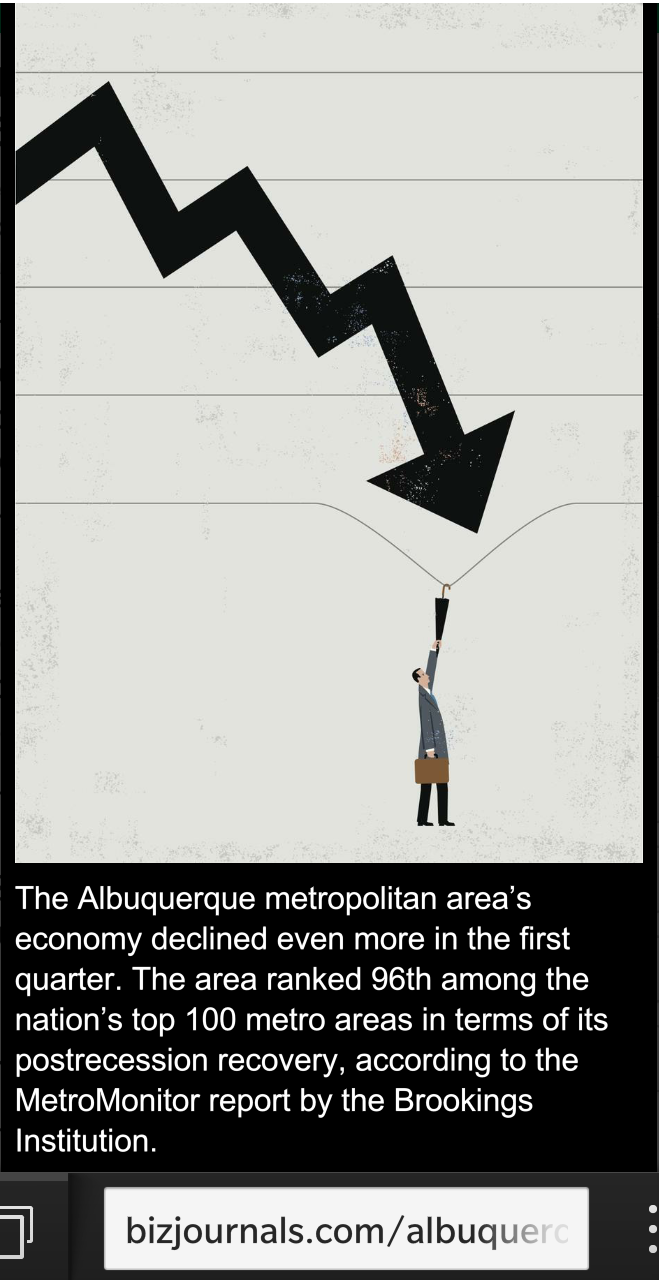Gov. Martinez has attracted the attention of at least one major news outlet for her recent statements about reducing the State’s role in providing the flow of money to government employee unions in New Mexico.
EDITORIAL: New Mexico challenges its public-sector unions
Gov. Martinez works to loosen the grip of AFSCME
By THE WASHINGTON TIMES Friday, April 4, 2014
The success of governors holding unions to account in the union strongholds of Wisconsin and Michigan has inspired imitators.
Gov. Susana Martinez of New Mexico — often mentioned as a prospective Republican vice presidential nominee in 2016 — wants the state government to quit collecting dues for the public-sector unions.
Government collection of union dues is not particularly costly for taxpayers, but it’s a unique and valuable perk for the unions. It’s so valuable, in fact, that Ms. Martinez was immediately scolded by a spokesman for the American Federation of State, County, and Municipal Employees, who called her announcement a “declaration of war.”
Given the chance to avoid mandatory dues collection, many government employees choose not to pay the tribute. Most employees would rather keep what they earn than send any of it to distant union bosses.
Membership plunged in the Milwaukee-area government employee union after Gov. Scott Walker freed employees from the burden of mandatory contributions. The Milwaukee union declined from 9,000 members and an income of $7 million in 2010 to 3,500 members and a deep deficit by the end of 2013.
Unions see direct deduction of dues from paychecks as key to their survival. The Rio Grande Foundation, a free-market think tank in New Mexico, argues that, far from a “declaration of war,” Ms. Martinez’s proposal is well to the left of Franklin D. Roosevelt’s opposition to the very existence of government employee unions. “The process of collective bargaining, as usually understood,” Mr. Roosevelt said in 1937, “cannot be transplanted into the public service.”
FDR understood that government unions had the power to manipulate bargaining to their benefit. Union dues could be used to elect the politicians who sit across the bargaining table.
Instead of an adversarial process that would lead to a fair bargain, it skewed the system. Union negotiators sat across the bargaining table from cronies eager to do their bidding. The taxpayers lost big.
The system became so unworkable in Detroit that the city collapsed into bankruptcy, but in other places government unions have been smart enough not to kill the host.
This isn’t so in New Mexico, where the host is gravely ill. Unlike neighboring Arizona and Texas, New Mexico is a blue state firmly controlled by Democrats. Republican governors are the exception, and the state House of Representatives has been in the hands of Democrats in New Mexico since the Eisenhower administration.
Liberal policies have not been kind to the Land of Enchantment. The Fraser Institute finds it to be the “least-free” state in the United States. Reliance on federal spending has impoverished the state. Despite clear skies and beautiful weather, it’s one of the 10 states losing population. Incomes are stagnant and the economic recoveries of its neighbors have dwarfed New Mexico’s.
Having Gov. Martinez in charge in Santa Fe, eager to implement authentic labor reform, puts New Mexico on track for an economic turnaround.






 In this essential manifesto of the new libertarian movement, New York Times bestselling author and president of FreedomWorks Matt Kibbe makes a stand for individual liberty and shows us what we must do to preserve our freedom.
In this essential manifesto of the new libertarian movement, New York Times bestselling author and president of FreedomWorks Matt Kibbe makes a stand for individual liberty and shows us what we must do to preserve our freedom. Matt Kibbe is the President and CEO of FreedomWorks, a national grassroots organization that serves citizens in their fight for more individual freedom and lessgovernment control. An economist by training, Kibbe is a well-respected policy expert, bestselling author and political commentator, and a regular guest on CNN, Fox News, The Blaze TV and MSNBC.
Matt Kibbe is the President and CEO of FreedomWorks, a national grassroots organization that serves citizens in their fight for more individual freedom and lessgovernment control. An economist by training, Kibbe is a well-respected policy expert, bestselling author and political commentator, and a regular guest on CNN, Fox News, The Blaze TV and MSNBC.
